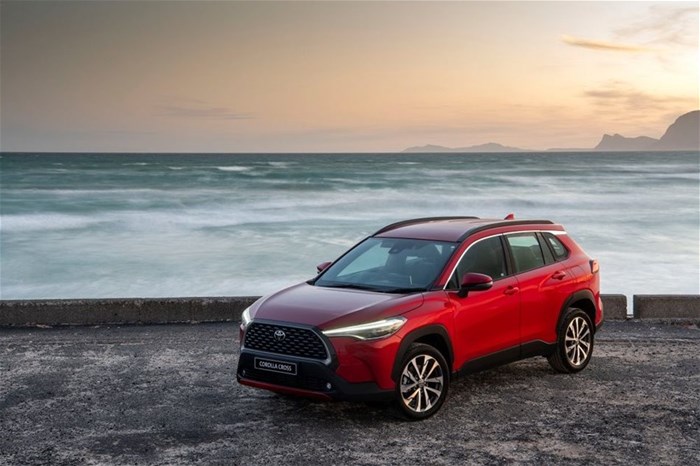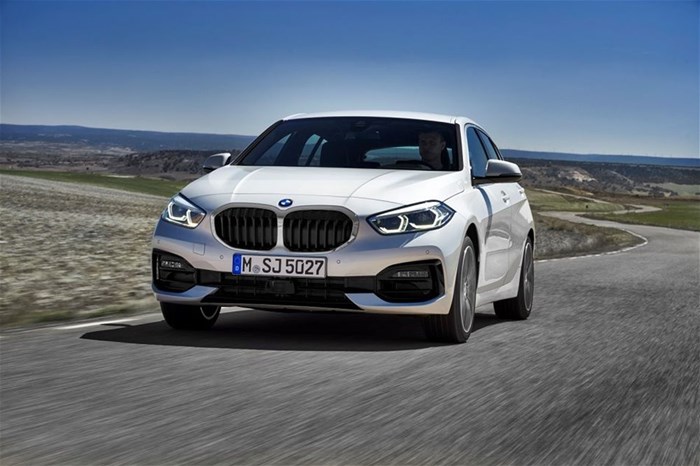In a contracting market, saddled by high interest rates and severe inflation, car buyers are letting go of their long-held brand loyalty and shopping with a sharper focus on value than ever before. Industry observers have been tracking this trend for a while now, witnessing new challenger brands gradually eroding the market share of established players.
Which car brands get the most attention from new-car customers? We looked at naamsa’s new vehicle sales data for April 2024 to get an idea of current buying trends, and pinponted some clear winners in the sales race.
Suzuki made big waves the first time it sold more cars in SA than VW managed to move.
It’s no surprise to see this Japanese manufacturer at the top of our sales charts - they’ve been a regular fixture in this position since the 1980s. Then, as now, the bulk of Toyota passenger car sales are in the value-oriented market segments, only now with a well-deserved reputation for durability and strong residual values on top of capable products. https://www.toyota.co.za/
The most-popular Toyota passenger car in South Africa is the Prospecton-built Corolla Cross, with the Suzuki-built Starlet close behind. Passenger car sales only make up part of Toyota’s local portfolio, though, with the Hilux and Fortuner still racking up strong sales in their respective market segments.
The Toyota Hilux and Fortuner are now available with 48V mild-hybrid powertrains - get the details here!
With remarkable growth over the past few years, Suzuki’s range of (mostly) Indian-built cars, SUVs, and crossovers have become firm favourites among a wide swath of value-conscious motorists. The Suzuki Swift deserves a lot of credit for establishing the brand, and remains Suzuki’s best-selling single model in South Africa.
The other Suzuki models are no less successful, with the Baleno hatchback and Ciaz sedan being highlights in the compact family car arena. Ignis, Fronx and Grand Vitara cover the SUV-crossover bases, and city-car shoppers getting to choose between the cheery S-Presso, currently SA’s cheapest new car, and the surprisingly grown-up Celerio.
Value for money is a given when you buy your first car with studentcars - The chances are that a high-value Suzuki models will be in this selection!
The best-selling single car model in South Africa is the Volkswagen Polo Vivo, built-in Kariega in the Eastern Cape. It is one of the more-affordable cars in one of our largest market segments, and Volkswagen’s brand value built over many decades ensures that it remains the absolute favourite car in South Africa.
Other Volkswagen models don’t sell quite so strongly anymore, though. Bar the latest Polo and Amarok (which is made by Ford alongside the related Ranger), its entire product range is imported, which makes the cars quite pricey after taxes, shipping, and our woeful foreign exchange rate. Solid resale values and strong aftermarket support should ensure reasonable ownership costs, helping to offset those higher purchase prices.
Get out more info about Volkswagen’s massive export programme and its plans for Africa here.
Bakkies are really commercial vehicles, but, because so many Rangers are of the double-cab variety, they get a pass on the “car” part. The bakkie-based Everest SUV also counts as a passenger car here. For Ford SA to achieve the fourth spot on the local vehicle sales charts with a model range which (until recently) consisted of only the pricey Puma and a selection of bakkies and off-road SUVs, is ample proof of the frame-based products’ popularity.
The new Territory looks likely to get a fair bit of attention, too, and should pose some resistance to the Chinese SUV invasion. Meanwhile, Ford is continuing its heavy investment in South Africa, and exports Silverton-built Rangers to most of the western hemisphere. Ranger hybrid production is scheduled to start soon, but has not been confirmed for local introduction at the time of publication.
Find out more about the Ford Territory in our launch report.
From a rocky start in the 1990s to the well-regarded brand it is today, Hyundai has certainly grown mature pretty rapidly. Thanks to a strong line-up of SUVs and compact cars, Hyundai SA is riding out the economic challenges with reasonable comfort.
The company’s most-affordable offering is the Indian-built Grand i10, which was SA’s seventh-best-selling model in April 2024 and is now available as a small sedan. The small Venue crossover also keeps steady sales figures, but the larger Creta, Tucson, Santa Fe and Palisade are taking strain on two fronts: Chinese encroachment and foreign exchange rates.
Hyundai recently added a sedan body style to the little Grand i10, and it’s proving popular among fleet buyers.
On the topic of the Chinese invasion: Chery continues its remarkable growth, and registered 2009 new cars in April 2024. This is only 106 units shy of Hyundai’s total sales, but without the benefit of a compact- or city car anywhere in the line-up.
Chery’s success stems from two main factors: They sell the cars which are in high demand (SUVs) at reasonable prices, equipped to the hilt with modern tech and nice to drive, with the promise of strong aftersales support adding some bay leaf to the stew. Chery is also pushing upmarket with the upcoming Tiggo 9, along with its Omoda and Jaecoo spin-offs to cater for upwardly-mobile and fashionable buyers.
See why the Chery Tiggo 8 Pro Max AWD is a performance bargain.
GWM sold a respectable 463 bakkies (P-Series and Steed combined), which means that more than 1,000 of GWM’s local sales in April 2024 came from Haval SUVs (and the Ora 03 EV). The Chinese automaker’s entry-level Jolion alone found 620 homes, which is utterly unsurprising, considering that less than R 350,000 buys a well-equipped family-sized SUV with 105 kW and 210 Nm underfoot.
The H6 mid-level SUV is also a comparative bargain, with an entry price comfortably below half-a-million Rand. Motive power is provided by a 2.0-litre turbo petrol engine, good for 150 kW and 320 Nm, substantially out-powering the similarly-priced offerings from legacy automakers. It’s also a winner in the space-versus-price contest, and has more standard equipment across the board.
Take a look at the comprehensive equipment levels in all value-priced Haval SUVs here.
Gone are the days when Nissan offered a full range of sedans and hatchbacks - think back to the days of Pulsar, Langley, Skyline, Laurel and know that they’re not coming back. The last hatchback died with the second-generation Almera, and the last-generation Almera finally groaned its way off to the junkyard in the sky in 2023, after a decade-long run.
These days, it’s all about the SUVs and crossovers, with even the Navara only contributing 303 sales to the April 2024 tally. The star of the show is the likeable Magnite, which registered 849 units. The comfortable and capable new Qashqai and X-Trail are both struggling to find traction, however, with a neglible contribution to this brand’s passenger car sales. Pity, because they are quite nice, and deserve to be shortlisted.
Conquering Africa: The Nissan Navara wants to make inroads into our continent.
Kwid, Triber and Kiger - upon these three pillars is Renault’s market share built. This wasn’t always the case, but in recent years, this French manufacturer has come to rely heavily on its Indian-built budget cars to retain market share. Of this triumvirate, the Kiger is the best choice if you can afford it, mainly because it’s built a bit sturdier and has the option of a turbo engine.
Even the Duster, which has always been appealing and has matured into a really capable smallish family SUV in its latest incarnation, can’t find much joy in the market because larger alternatives can now be had for less. And the new Clio and Captur, which are brilliant in almost every respect, are imported from Europe, which make them quite expensive for their segments. There’s also the comfy Koleos SUV at the top of the range, but nobody ever buys one…
The Renault Kiger is one of the used compact SUVs you should consider, instead of a new entry-level hatchback.
It’s quite a shocker to see the BMW Group (including Mini), one of South Africa’s most desirable brands, so far off the podium in monthly sales. Blame ever-escalating prices for this sales slide, along with more-conservative buying patterns due to restricted disposable income all around.
The least-expensive Mini currently retails just over R600,000, and the most-affordable BMW starts a smidge under R700,000. At least the base Mini is now in Cooper S trim, which gets 147 kW and 280 Nm from a 2.0-litre engine, and has a 7-speed dual-clutch transmission as standard. The base BMW 118i has to make do with a 115 kW/220 Nm turbo 3-cylinder, and is a pretty ordinary but very pricey compact front-wheel-drive car…
The new 7 Series has been crowned as South Africa’s Car of the Year for 2024 - it’s expensive and excellent in equal measure.













































